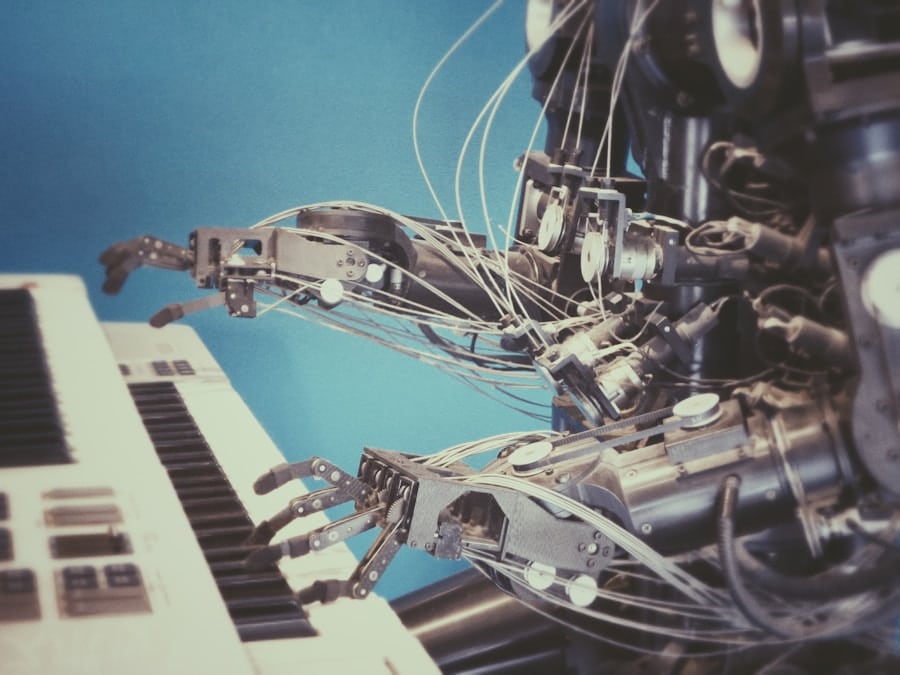The advent of artificial intelligence (AI) has ushered in a new era in various fields, and music is no exception. AI-powered adaptive music refers to the use of algorithms and machine learning techniques to create, modify, and personalize music in real-time based on user interactions and environmental factors. This innovative approach allows for a dynamic listening experience that evolves with the user, making it particularly appealing in interactive entertainment settings such as video games, virtual reality (VR), and augmented reality (AR).
The ability of AI to analyze user behavior and preferences enables composers and developers to craft soundscapes that are not only immersive but also uniquely tailored to individual experiences. The concept of adaptive music is not entirely new; however, the integration of AI has significantly enhanced its capabilities. Traditional adaptive music systems often relied on pre-composed tracks that would switch based on specific triggers or events.
In contrast, AI can generate music on-the-fly, creating an endless variety of soundscapes that respond to the user’s actions, emotional state, or even the narrative context of a game. This level of interactivity transforms the way audiences engage with music, making it an integral part of the storytelling process rather than a mere background element.
Key Takeaways
- AI-powered adaptive music uses artificial intelligence to create personalized and dynamic soundtracks for interactive entertainment experiences.
- AI has revolutionized music composition and production by enabling the generation of unique and tailored music based on user interactions and preferences.
- AI enhances user experience in interactive entertainment by creating immersive and responsive soundtracks that adapt to the user’s actions and emotions.
- Implementing AI-powered adaptive music presents challenges such as ensuring seamless integration and opportunities such as creating new revenue streams through personalized music experiences.
- The future potential of AI-powered adaptive music in virtual reality and augmented reality includes creating fully immersive and interactive audio experiences that respond to the user’s environment and actions.
The Impact of AI on Music Composition and Production
AI-Assisted Composition
This capability allows AI to assist composers in generating new melodies, harmonies, and rhythms that align with specific genres or emotional tones. For instance, platforms like OpenAI’s MuseNet and Google’s Magenta project have demonstrated the ability to compose original pieces across various styles, from classical to contemporary pop, showcasing the potential for AI to serve as a collaborative tool for musicians.
Streamlining Music Production
AI can also streamline the production process by automating repetitive tasks such as mixing and mastering. Tools like LANDR utilize AI algorithms to analyze audio tracks and apply optimal adjustments, saving time for producers while ensuring high-quality sound.
Democratizing Music Production
This democratization of music production means that aspiring artists can access professional-grade tools without the need for extensive technical knowledge or expensive studio equipment. As a result, the barriers to entry in the music industry are lowered, fostering a more diverse range of voices and styles.
The Role of AI in Enhancing User Experience in Interactive Entertainment

In the realm of interactive entertainment, AI-powered adaptive music plays a crucial role in enhancing user experience by creating a more immersive environment. By responding to player actions and decisions in real-time, adaptive music can heighten emotional engagement and reinforce narrative elements. For example, in video games like “The Last of Us Part II,” the music dynamically shifts based on gameplay scenarios—intensifying during combat sequences while softening during moments of exploration or character development.
This seamless integration of music into gameplay not only enriches the overall experience but also deepens players’ emotional connections to the story and characters. Furthermore, AI can personalize the musical experience based on individual player preferences. By analyzing user data—such as previous gameplay choices or even biometric feedback—AI systems can curate soundtracks that resonate with specific players.
This level of customization ensures that each player’s journey is unique, fostering a sense of ownership over their experience. As interactive entertainment continues to evolve, the ability to adapt music in real-time will likely become a standard feature, setting new benchmarks for engagement and immersion.
Challenges and Opportunities in Implementing AI-Powered Adaptive Music
While the potential for AI-powered adaptive music is vast, several challenges must be addressed for its widespread implementation. One significant hurdle is the technical complexity involved in developing algorithms capable of generating high-quality music that aligns with user interactions. Creating a system that can produce coherent and emotionally resonant compositions in real-time requires sophisticated machine learning models trained on diverse musical datasets.
Additionally, ensuring that these systems can operate seamlessly within various platforms—ranging from gaming consoles to mobile devices—presents further technical challenges. Despite these obstacles, opportunities abound for innovation in this space. As technology advances, we are likely to see improvements in AI’s ability to understand musical context and emotional nuance.
Collaborations between musicians and technologists can lead to groundbreaking tools that enhance creativity while maintaining artistic integrity. Moreover, as more developers recognize the value of adaptive music in enhancing user experiences, investment in research and development will likely increase, driving further advancements in this field.
The Future Potential of AI-Powered Adaptive Music in Virtual Reality and Augmented Reality
The integration of AI-powered adaptive music into virtual reality (VR) and augmented reality (AR) holds immense potential for transforming user experiences. In VR environments, where immersion is paramount, adaptive music can respond not only to user actions but also to spatial dynamics within the virtual world. For instance, as a player navigates through different environments—such as a serene forest or a bustling city—the music could shift accordingly, enhancing the sense of presence and realism.
This adaptability can create a more engaging narrative experience, allowing users to feel as though they are truly part of the story. In AR applications, where digital elements overlay the real world, adaptive music can further enrich interactions by responding to real-time environmental cues. Imagine an AR game where players explore their surroundings while encountering digital creatures; the music could change based on the player’s location or even their emotional reactions as they engage with these elements.
This level of interactivity not only enhances gameplay but also opens up new avenues for storytelling and artistic expression within mixed-reality experiences.
Ethical and Legal Considerations in AI-Generated Music in Interactive Entertainment

As AI-generated music becomes more prevalent in interactive entertainment, ethical and legal considerations emerge that warrant careful examination. One primary concern revolves around copyright issues related to AI-generated compositions. If an AI system creates a piece of music based on existing works, questions arise regarding ownership and intellectual property rights.
Who holds the rights to a composition generated by an algorithm? Is it the developer who created the AI, the user who interacted with it, or perhaps even the original artists whose works informed the algorithm? These questions challenge traditional notions of authorship and necessitate new legal frameworks to address them.
Additionally, there are ethical implications surrounding the use of AI in music creation. The potential for AI to replicate human creativity raises concerns about authenticity and artistic integrity. As machines increasingly take on roles traditionally held by human musicians and composers, there is a risk that unique human experiences and emotions may be diluted or lost altogether.
Striking a balance between leveraging AI’s capabilities while preserving the essence of human creativity will be crucial as this technology continues to evolve.
The Integration of AI-Powered Adaptive Music in Gaming and Interactive Storytelling
The integration of AI-powered adaptive music into gaming and interactive storytelling represents a significant evolution in how narratives are experienced by audiences. In traditional storytelling mediums such as film or literature, music serves as an accompaniment to enhance emotional impact; however, in interactive formats, it becomes an active participant in shaping the narrative journey. Games like “Journey” exemplify this integration by using adaptive music that evolves based on player actions and emotional states, creating a deeply personal experience that resonates with players long after they have finished playing.
By adjusting musical themes based on player decisions or emotional responses, developers can create a more cohesive narrative experience that feels responsive and alive. This level of interactivity not only enhances player engagement but also encourages exploration and experimentation within the game world.
The Evolution of AI-Powered Adaptive Music in Interactive Entertainment
The evolution of AI-powered adaptive music marks a transformative shift in how we engage with sound within interactive entertainment. As technology continues to advance, we can expect even greater innovations that push the boundaries of creativity and interactivity. The ability for music to adapt dynamically based on user interactions not only enriches gameplay but also fosters deeper emotional connections between players and narratives.
As we navigate the challenges and opportunities presented by this technology—ranging from technical complexities to ethical considerations—the future holds exciting possibilities for artists, developers, and audiences alike. The integration of AI into music composition and production is not merely a trend; it represents a fundamental change in how we create and experience art in an increasingly interactive world. As we look ahead, it is clear that AI-powered adaptive music will play an integral role in shaping the future landscape of interactive entertainment.
If you are interested in exploring the latest technology trends, you may also want to check out this article on the features of the Samsung Galaxy Chromebook 2. This article delves into the specifications and capabilities of this innovative device, highlighting its sleek design and powerful performance. Just like AI-powered adaptive music, the Samsung Galaxy Chromebook 2 represents the cutting edge of technology and showcases the exciting possibilities that lie ahead in the world of interactive entertainment.
FAQs
What is AI-powered adaptive music in interactive entertainment?
AI-powered adaptive music in interactive entertainment refers to the use of artificial intelligence to create and adapt music in real-time based on the actions and decisions of the player or user. This technology allows for a more immersive and personalized experience in video games, virtual reality, and other interactive media.
How does AI-powered adaptive music work?
AI-powered adaptive music works by using algorithms to analyze the player’s behavior, the game environment, and other contextual factors in real-time. Based on this analysis, the AI system generates and adjusts the music to match the mood, pace, and intensity of the gameplay, creating a more dynamic and responsive audio experience.
What are the benefits of AI-powered adaptive music in interactive entertainment?
The benefits of AI-powered adaptive music in interactive entertainment include enhanced immersion, personalized experiences, and seamless integration of music with gameplay. This technology can also help create more engaging and emotionally impactful experiences for players, as the music dynamically responds to their actions and decisions.
What are some potential applications of AI-powered adaptive music?
AI-powered adaptive music can be used in a variety of interactive entertainment experiences, including video games, virtual reality simulations, interactive storytelling, and theme park attractions. It can also be applied to other forms of media, such as film and television, to create more dynamic and responsive soundtracks.
What are the challenges of implementing AI-powered adaptive music?
Challenges in implementing AI-powered adaptive music include the need for sophisticated algorithms, computational resources, and integration with existing game or media development pipelines. Additionally, ensuring that the music adapts seamlessly and effectively to the player’s actions and the game’s context requires careful design and testing.

